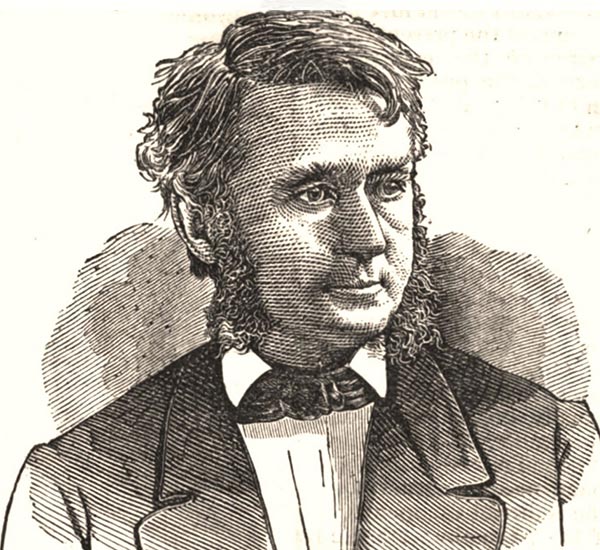George Andrews Crofutt (1827 - January 27, 1907) was an American publisher, writer, and promoter of the westward expansion. He was born in Danbury, Connecticut. Looking for greater financial opportunities he moved as a young man to New York City and later Philadelphia, where worked as a journalist, publisher, and editor. During the Panic of 1857 he went bankrupt and so, with nothing to lose, joined the Pike's Peak Gold Rush, arriving in Colorado in 1860. Crofutt was unsuccessful as a prospector, but fell in love with the majesty and beauty of the American West. When he attended the May 10, 1869 driving of the Golden Spike at Promontory Summit, Utah, which celebrated the connecting the Central Pacific and the Union Pacific Railroads, he reconnected with his passion for journalism. This began one of the most successful publishing careers in 19th century American. Crofutt was one of the first to recognize and capitalize on the possibilities of transcontinental tourism provided by the completion of the Union Pacific Railroad. He was a great promoter of westward migration, Manifest Destiny, and the settlement of Colorado. He commissioned John Gast's famous 1872 painting, American Progress, and, from 1873, issued limited edition chromolithographs of it. His series of guides, including the Great Transcontinental Railroad Guide, Crofutt's Overland Tourist, Crofutt's Overland Tours, Crofutt's Grip-Sack Guide and more, were among the first travel guidebooks to focus on the American West. These revolutionary guides included engravings (and later photographs) of natural wonders and indigenous peoples, as well as train and stage schedules, maps, fare information, and regional descriptions. Crofutt publications proved so popular that by 1878 he claimed to have sold more than 300,000 copies of his Overland Tourist. Fifer described Crofutt as 'One of the most prolific and widely-read authors on the American West in the last half of the 19th century.' Crofutt died in New York City at age 79.



